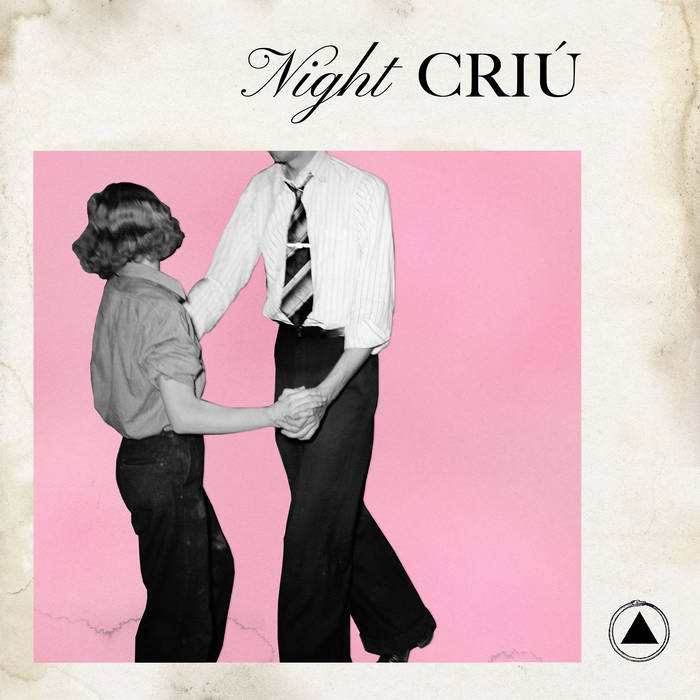With the very rare exception, albums consciously released on Samhain itself are, at best, wax-dripped approximations of magick, spellwork as press-cycle. Night CRIÚ, Hilary Woods’ fourth album for Sacred Bones, is that exception. It hums with something older: a slow, secret electricity. The more you try to grasp, the more it draws its charge back into shadow. Blessedly, its outline remains enough to follow.
When I reviewed her debut album, Colt, in 2018, I wrote that Woods finding her way to Sacred Bones felt foreordained, as if she’d simply arrived where her work had always been leading. Few artists have navigated their own quiet mythology with such precision, and fewer still have done it without spectacle. Night CRIÚ extends that inclination outward, tracing the fractures between silence and song until they bloom into new light.
“Devotional, drone, dusk, dust.” It may seem arbitrary, but those are the first four tags on the record’s Bandcamp page, and they feel like coordinates. This is a record made from the ritual act of returning to the voice after recent years spent orbiting the instrumental. If 2021’s Feral Hymns and 2023’s Acts of Light explored the ghost architecture of sacred drone, Night CRIÚ is the re-entry and the reclamation.
Following two exquisite instrumental records, Woods returns to song form – and to her voice – using it as both compass and invocation. Across seven songs, she builds an intimate ecosystem of sound: an act of re-inhabiting the body through vocal layering, breath and harmony. Woods has said, “Each record is a life buoy, a raft, a snapshot, a marker in the sand, a date that requires me to meet it. Making records is a way of being.” Here, that being feels tactile and near.
These songs were chosen from a series of early home recordings, refined across continents – from the West Coast of Ireland to Dublin, London, Latvia and Richmond, Virginia – and mixed by Dean Hurley, with additional production by Hurley and Oliver Turvey. Their fingerprints are light but vital, helping shape a soundworld that is at once devotional and defiant, inspired by everything from early Italian and Czech cinema to the revival of indigenous language, the joy in dance and the collective insistence on humanity in the face of tyranny and oppression.
The album opens with ‘Voce’, a stringed siren where cello and a wonderfully ad hoc children’s choir – including several of the Dublin artist’s nephews – sway like candlelight over water, creating a sweet tension amplified by crawling percussion and the occasional bang or shriek of violin. Woods’ own voice glistens through the murk, a long pearl of rain on a window before it breaks. It’s the sound of a life remembered from its edges.
‘Faults’ is right up there with the most heart-stopping things she’s ever written. “I had wanted you to hold my hand,” she begins, almost conversational, warm guitar low in the mix, before brass lifts the line heavenward. The Hangleton Brass Band lends a strange tenderness; a sublime hymn of hope shining through restraint, the kind that leaves marks even as it heals. If ‘Taper’ edges towards folk – its waltzing sway invoking Magnet by half-light – it’s still spectral, still hushed. The returning choir drifting through the closing measures feels less like innocence than transcendence. Woods has said it’s “a love song that only a children’s choir could express fully,” and she’s not wrong.
Arriving with a self-directed video that bridges her analogue film practice with music, lead single ‘Endgames’ is a masterclass in slow revelation: six minutes, two chords, a Julee Cruise-ian suspension between cello, voice and glissando harp. Over lyrics that confess, “He could never love you / Never ever more than me,” Woods turns longing into ritual, her voice circling the wound until it becomes its own form of release. She may be using her voice again, but there’s a cloaked ecstasy to ‘Offerings’. In just over two minutes, it rises to something akin to keening, the pre-Christian Irish tradition of vocal grief, as a liturgical melody, syllabic yet indecipherable, casts its spell before abruptly breaking. Proof, not that it was ever needed, that Woods can also summon in short order.
By the time ‘Shelter’ closes the album, she has redrawn her own perimeter: a backwash of beatific drones and backlit vocals that sound as if sung from the bottom of a lake. You can almost hear the morning beginning somewhere outside the frame; waking birds, maybe faint traffic, the world deciding not to end after all. But it’s her words that reach furthest, turning the song into a quiet catechism of endurance. Each image feels both prayer and reckoning: beds as tombs, storms as classrooms, love as the anchor in the eye of it all.
I feel it in my bones that this is music that could not be made unless it had to be made. Night CRIÚ is devotional not in form but in the force of doing: the sound of someone, in full voice again, quietly committing to their own necessity. Not since Enya has an Irish artist treated space as such a living thing; much less a void than a kind of embodied, private grace.



